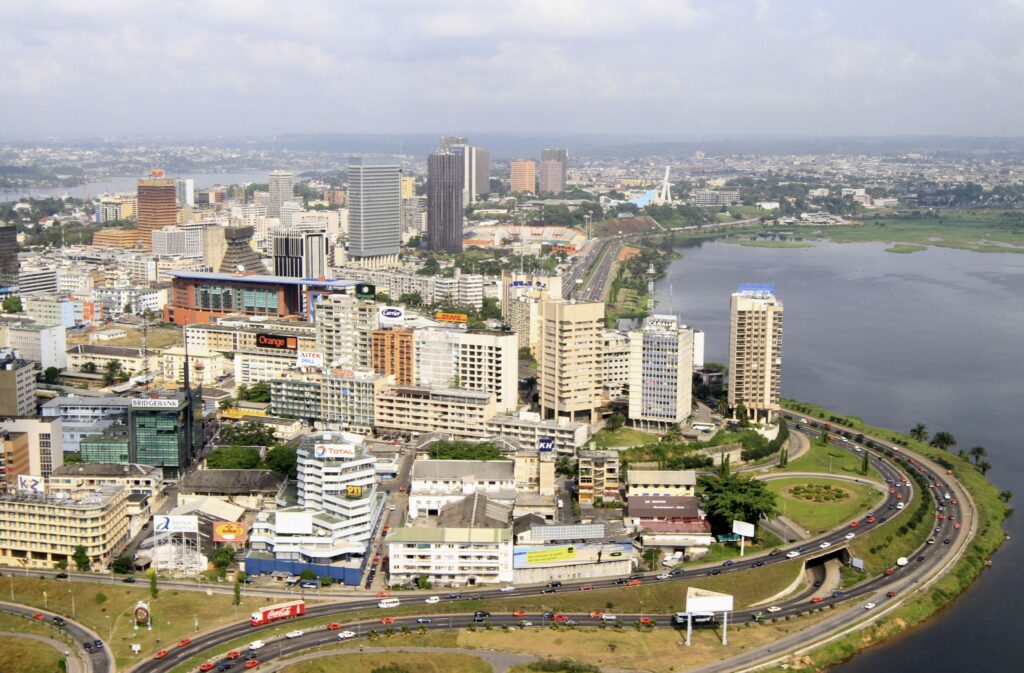
As Côte d’Ivoire prepares for its highly anticipated presidential election in October, the nation faces significant political and economic transitions that will shape its future. While the suspense regarding the identities of the presidential candidates remains, the country’s accelerated development continues to be an undeniable reality. Yet, with growth comes new risks, especially in the realm of cybersecurity. As businesses, government institutions, and citizens embrace digital transformation, cybersecurity threats loom large, and the stakes are higher than ever.
1. Côte d’Ivoire’s Digital Transformation and the Rise of Cyber Risks
Over the past decade, Côte d’Ivoire has seen remarkable economic growth, marked by rapid industrialization, a burgeoning tech sector, and increased foreign investments. With the government prioritizing digital innovation as a key driver of economic development, the country has made strides in building digital infrastructure, expanding internet connectivity, and fostering a more connected economy.
However, this digital transformation also brings with it vulnerabilities that need to be addressed urgently. Cybersecurity is no longer just an afterthought; it is a fundamental aspect of national security and economic stability. As more businesses and government services move online, the risk of cyberattacks targeting critical infrastructure, financial institutions, and sensitive data increases exponentially.
Increasing Dependency on Technology:
The Ivorian government’s e-government initiatives, digital banking systems, and mobile money platforms have enabled millions of citizens to benefit from easier access to services. However, these digital solutions also create opportunities for cybercriminals to exploit weaknesses. Phishing attacks, data breaches, and ransomware campaigns are becoming more sophisticated and prevalent in the region, threatening both private and public sectors.
2. The Cyber Threat Landscape in Côte d’Ivoire
As Côte d’Ivoire continues to position itself as a tech hub in West Africa, it is also becoming a target for cybercriminals. The country’s growing digital economy makes it an attractive target for malicious actors, including hackers, cybercriminal gangs, and even state-sponsored entities.
Cybercrime in Côte d’Ivoire:
Cybercrime in Côte d’Ivoire has seen a marked rise, driven by the country’s increasing online presence. In particular, financial fraud, identity theft, and data breaches are among the most pressing threats. The rise of mobile money platforms, which serve as a lifeline for millions of Ivorians, has made financial institutions vulnerable to cyberattacks. Hackers have been known to exploit weak security measures in mobile payment systems to steal funds and compromise customer data.
Political Cyberattacks and Election Security:
As Côte d’Ivoire heads into a crucial presidential election, the risk of political cyberattacks is another pressing concern. Cyber warfare and election interference are becoming more common, and the 2025 election could be a prime target for malicious actors attempting to undermine the democratic process. Hackers could attempt to disrupt the electoral process, manipulate voting data, or spread disinformation to influence public opinion.
To secure the upcoming elections, it is essential that both government and political parties prioritize cybersecurity measures, such as securing election databases, protecting voter information, and monitoring online misinformation campaigns.
3. National Cybersecurity Efforts
Recognizing the increasing cyber risks, the Ivorian government has started implementing initiatives to strengthen its cybersecurity infrastructure. The National Agency for the Security of Information Systems (ANSSI) plays a central role in these efforts by providing guidelines and technical support for securing critical systems. Additionally, the country has been working with international partners to improve its cyber capabilities and align with international cybersecurity standards.
Cybersecurity Laws and Regulations:
In an effort to safeguard data and combat cybercrime, Côte d’Ivoire has enacted several laws aimed at improving cybersecurity. The country has introduced measures for regulating the use of personal data and encouraging organizations to adopt secure practices. However, there remains a gap in terms of enforcement and compliance, particularly in the private sector.
Côte d’Ivoire must continue to improve its regulatory framework by ensuring that businesses, financial institutions, and government agencies implement best practices for cybersecurity. This includes regular audits, employee training, and rapid incident response plans.
4. The Role of the Private Sector in Enhancing Cybersecurity
The private sector, especially in areas like banking, telecommunications, and e-commerce, must take an active role in addressing cybersecurity risks. These industries are particularly vulnerable to cyber threats due to the volume of sensitive information they handle.
Banking and Finance:
With mobile banking and digital payment systems becoming increasingly popular in Côte d’Ivoire, financial institutions must invest in state-of-the-art security systems to prevent cyberattacks. The adoption of encryption technologies, secure transaction protocols, and two-factor authentication will be key in protecting customer funds and data.
Telecommunications:
Telecommunications companies are another prime target for cybercriminals due to their role in facilitating internet access and communications. A breach in the telecom sector could have far-reaching consequences, affecting everything from communication systems to online transactions. Telecom operators must focus on securing their networks and infrastructure against hacking attempts.
Private Businesses:
Businesses across all sectors in Côte d’Ivoire must prioritize cybersecurity, not only to protect themselves from financial loss but also to build trust with their customers. Investing in cybersecurity awareness programs, implementing advanced firewalls, and using intrusion detection systems can help mitigate the risk of cyberattacks.
5. International Collaboration and Cybersecurity Capacity Building
As cyber threats transcend national borders, international collaboration is essential in addressing the cybersecurity challenges faced by Côte d’Ivoire. The country has been working closely with organizations such as the African Union (AU) and the International Telecommunication Union (ITU) to strengthen its cybersecurity posture. Additionally, partnerships with international cybersecurity firms can help bolster Côte d’Ivoire’s defense against cybercrime.
Capacity Building:
To address the growing cyber threat, Côte d’Ivoire must invest in training and capacity building for its workforce. This includes providing cybersecurity education at the university level, fostering a culture of cybersecurity awareness, and developing a pool of skilled professionals who can defend against the increasing sophistication of cyberattacks.
10 Cybersecurity Recommendations for Côte d’Ivoire
- Invest in cybersecurity education and awareness: Provide training programs to build a skilled cybersecurity workforce.
- Strengthen regulatory frameworks: Ensure that businesses comply with national cybersecurity laws and international standards.
- Enhance collaboration between the public and private sectors: Foster public-private partnerships to improve overall cybersecurity resilience.
- Adopt encryption and secure data storage methods: Protect sensitive data using encryption technologies and secure servers.
- Implement two-factor authentication (2FA): Encourage businesses and citizens to use 2FA for added security.
- Develop incident response strategies: Prepare for cyberattacks by establishing clear incident response protocols.
- Monitor online misinformation: Use cybersecurity tools to identify and counter online disinformation campaigns during elections.
- Invest in secure payment systems: Protect mobile money platforms and digital payment systems from cybercriminals.
- Conduct regular cybersecurity audits: Regularly assess systems and networks to identify and mitigate potential vulnerabilities.
- Strengthen international cooperation: Work with global cybersecurity organizations to share threat intelligence and best practices.
Conclusion:
As Côte d’Ivoire navigates a critical year marked by political transitions and an accelerating digital transformation, cybersecurity will play a pivotal role in safeguarding the country’s growth and stability. The government, private sector, and citizens must work together to address the evolving threat landscape and build a resilient, secure digital future. With concerted efforts and proactive strategies, Côte d’Ivoire can overcome these challenges and set an example for other African nations in securing their digital economies.
Want to stay on top of cybersecurity news?
Follow us on:
Facebook | X (Twitter) | Instagram | LinkedIn
for the latest threats, insights, and updates!
Published on March 03, 2020.


